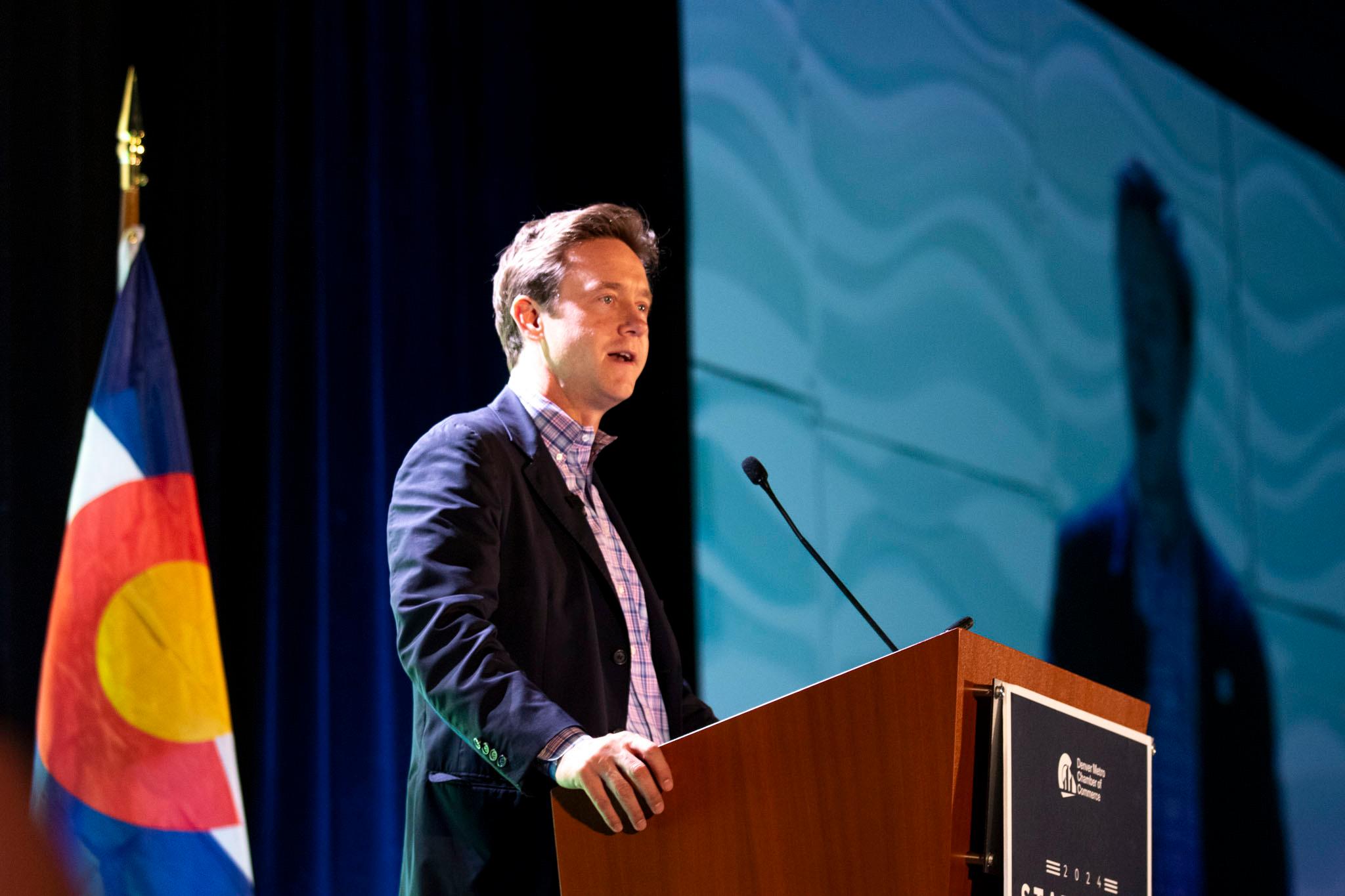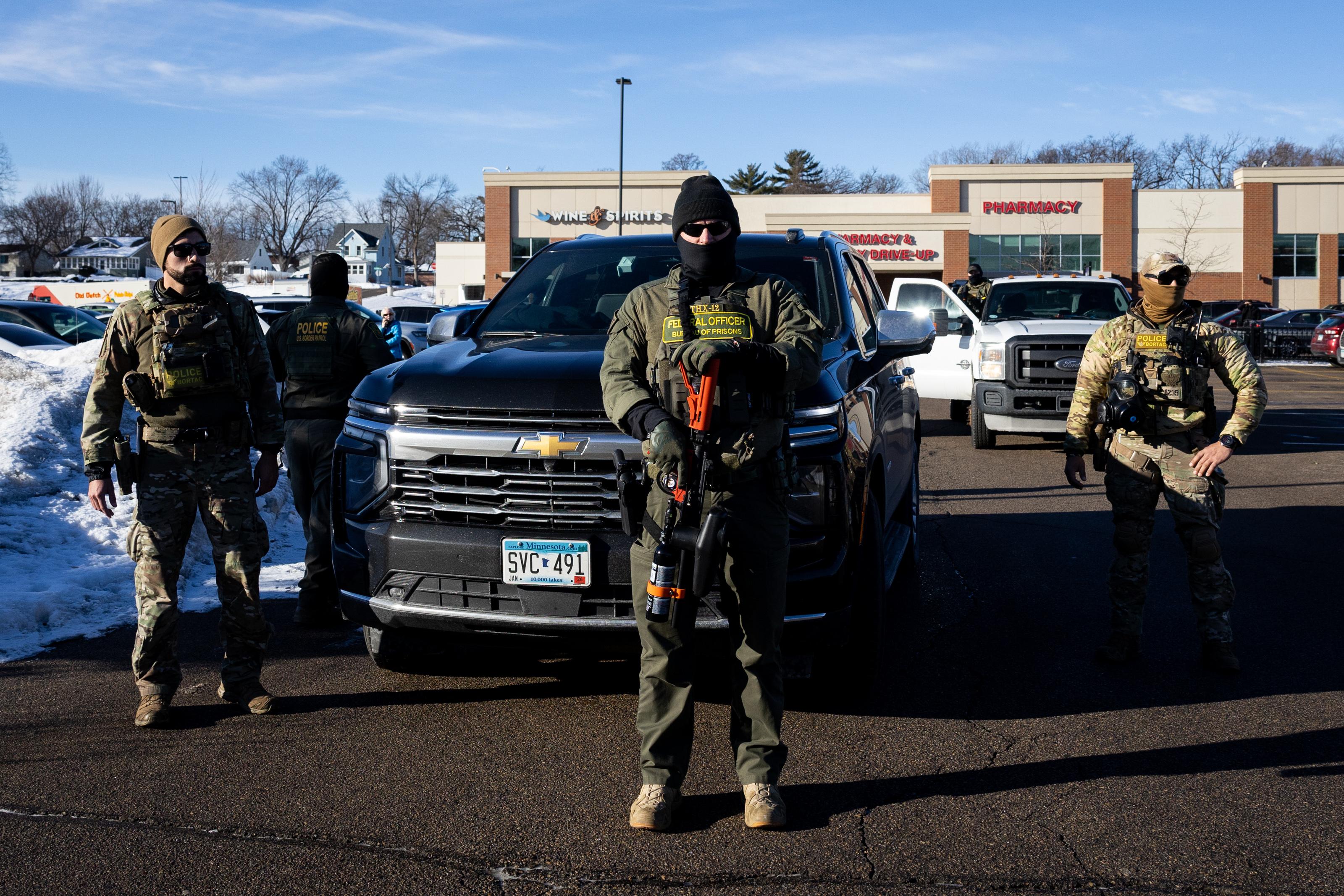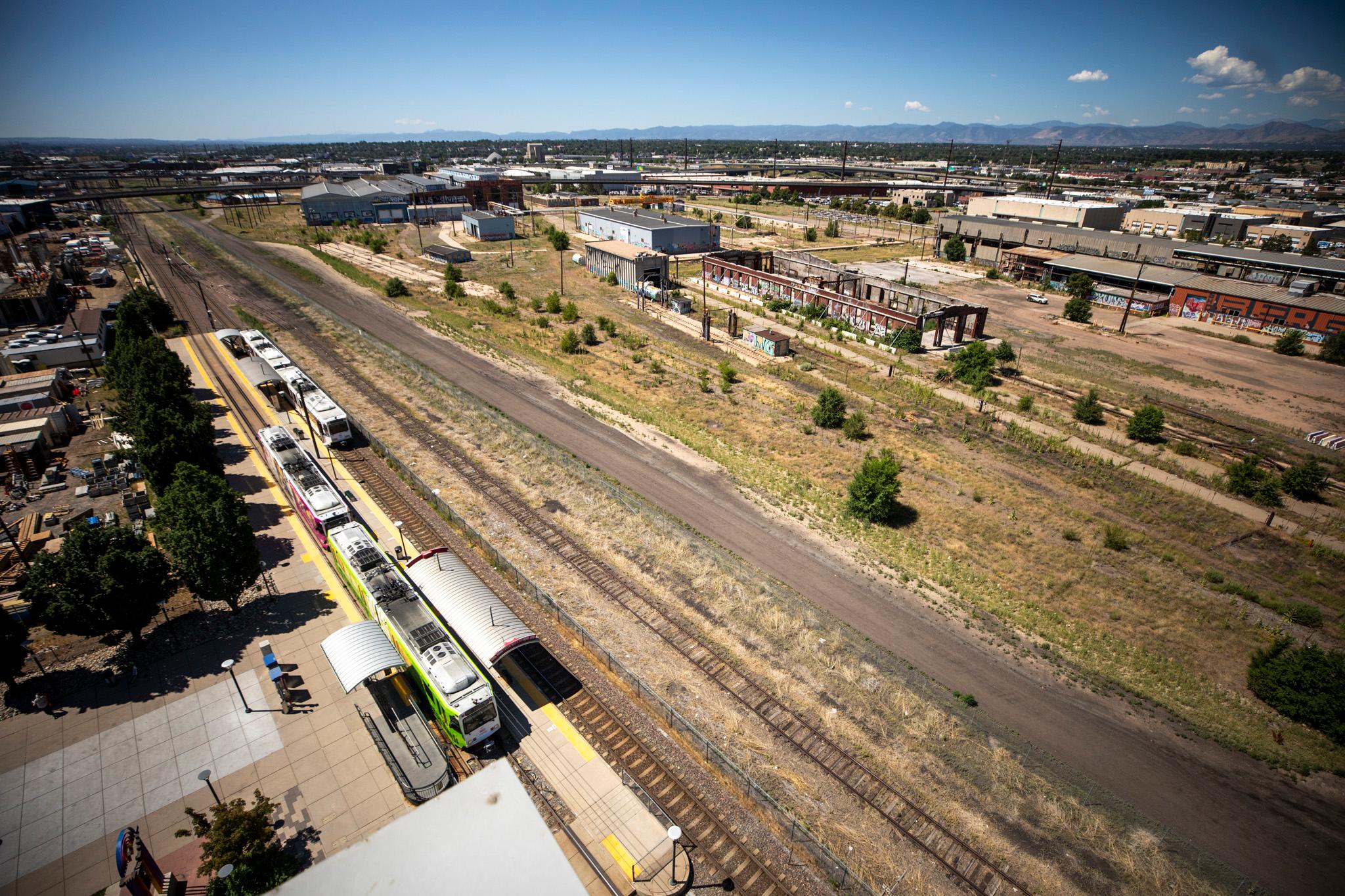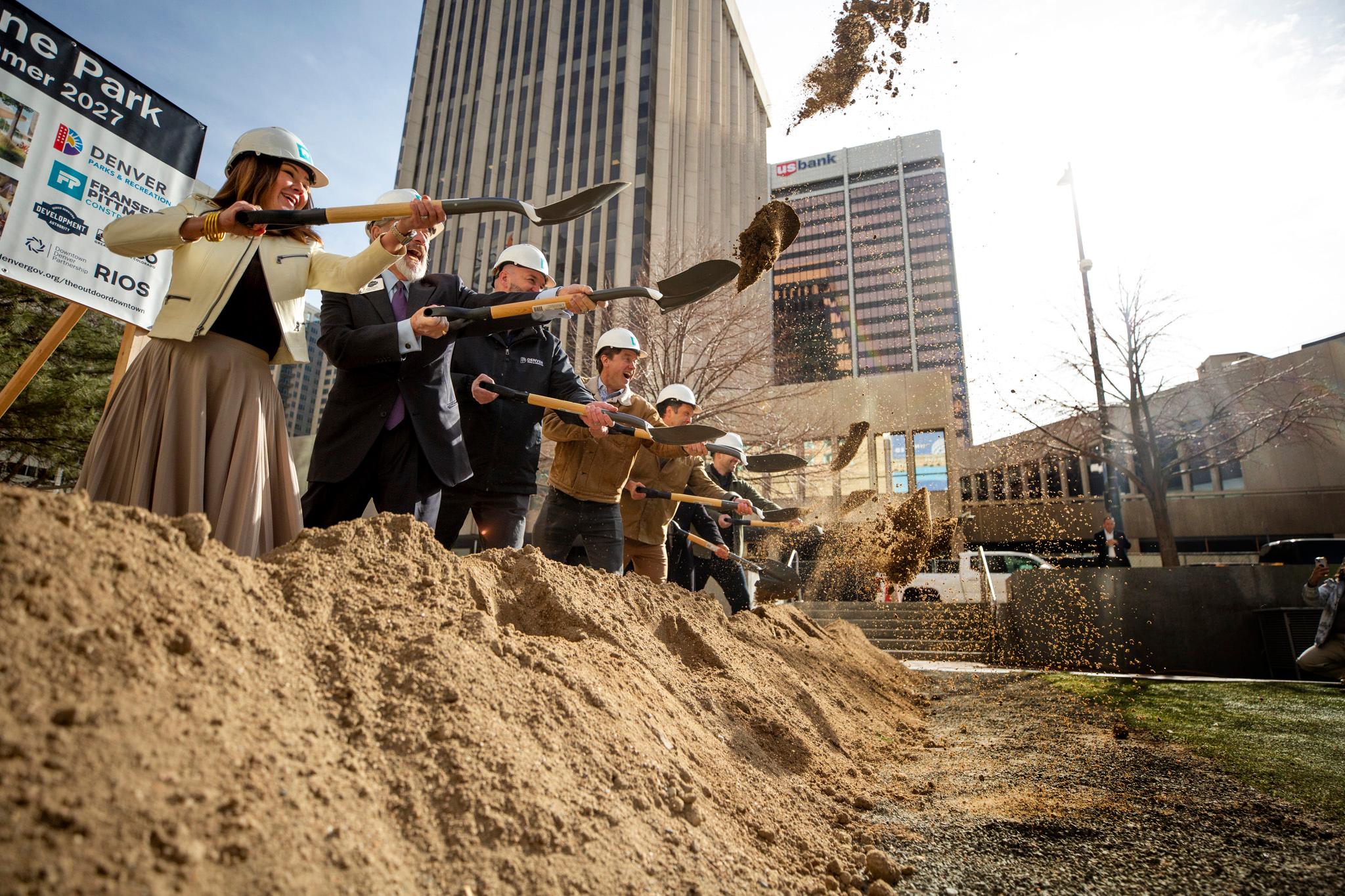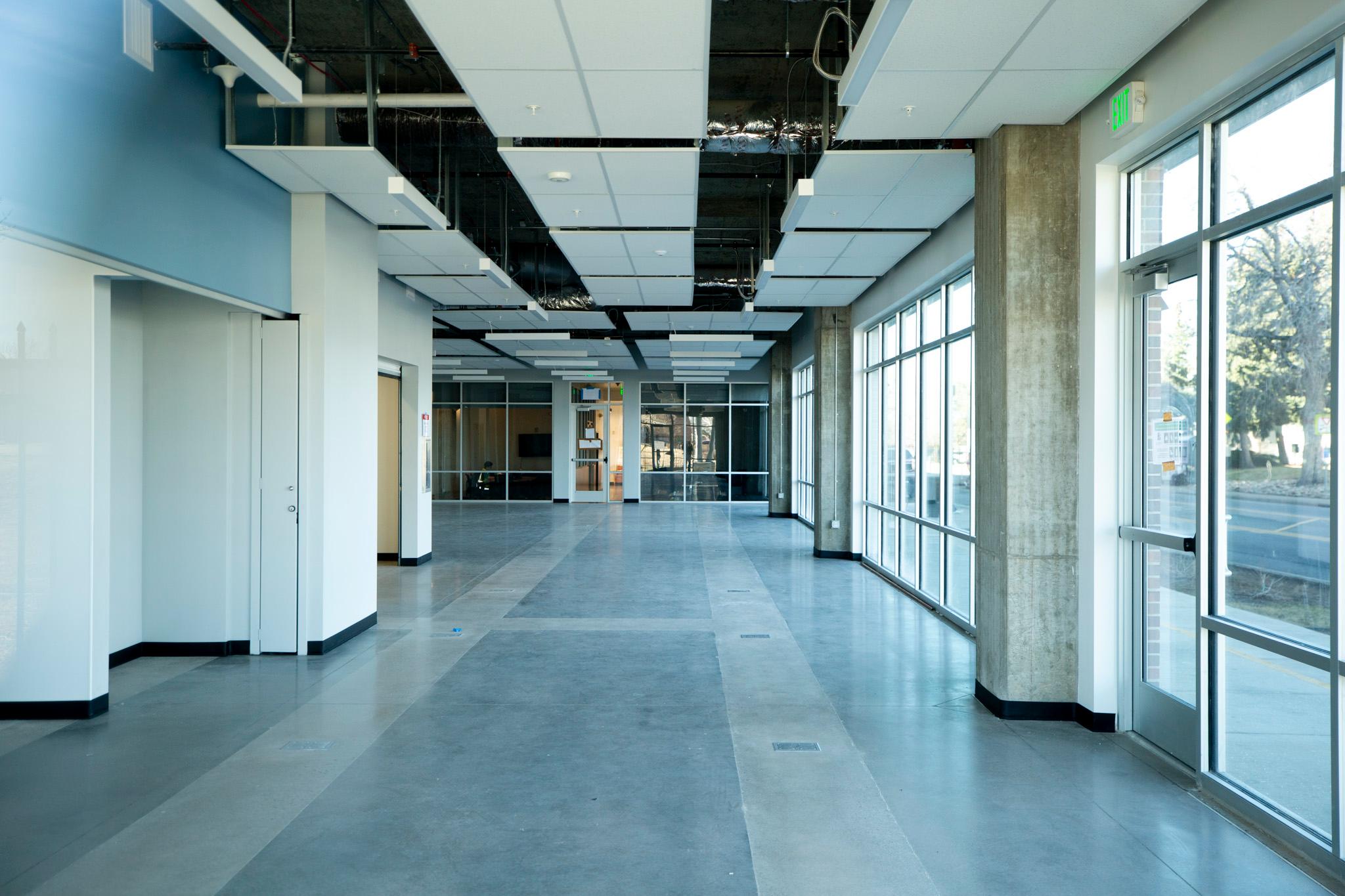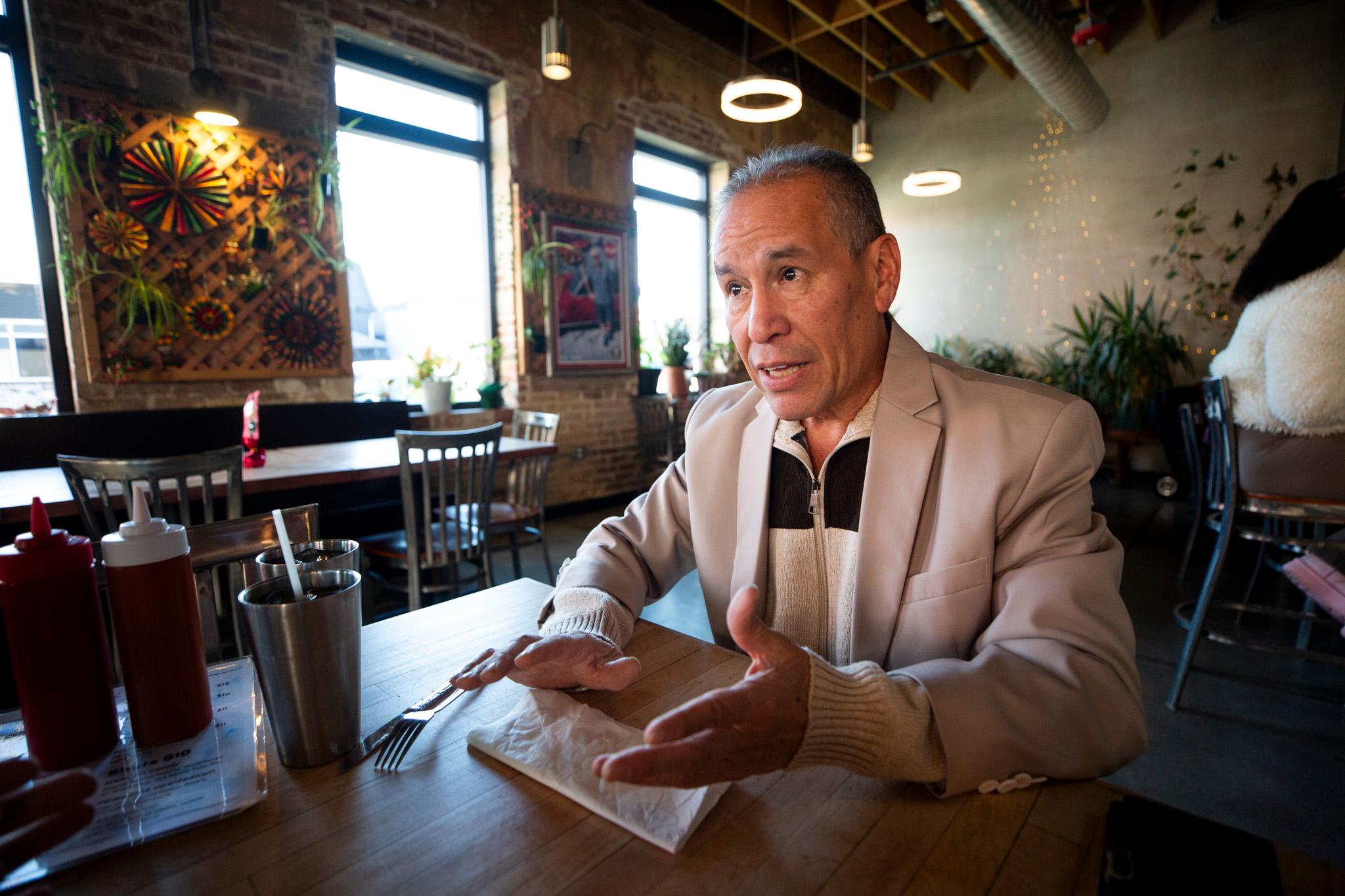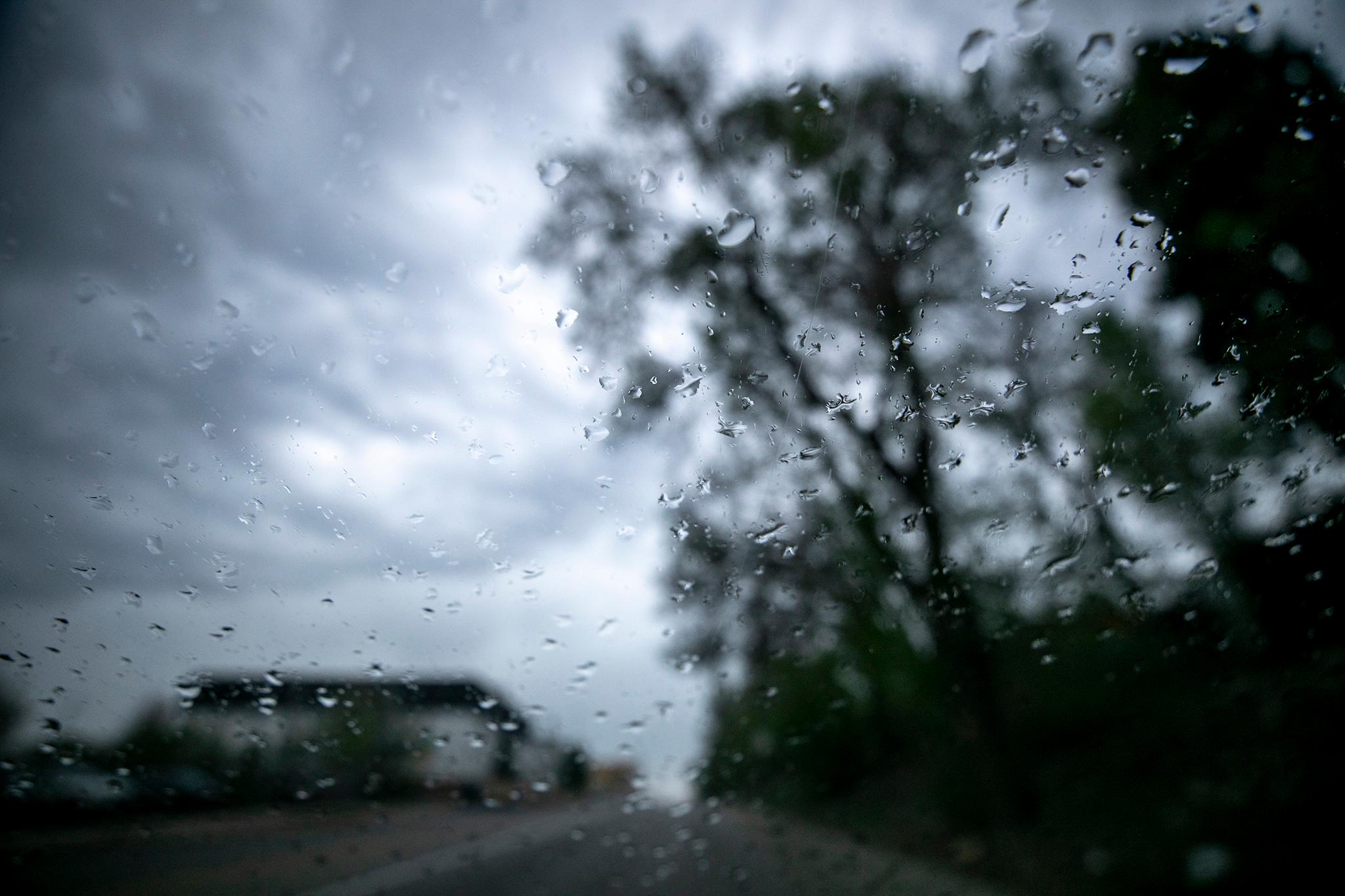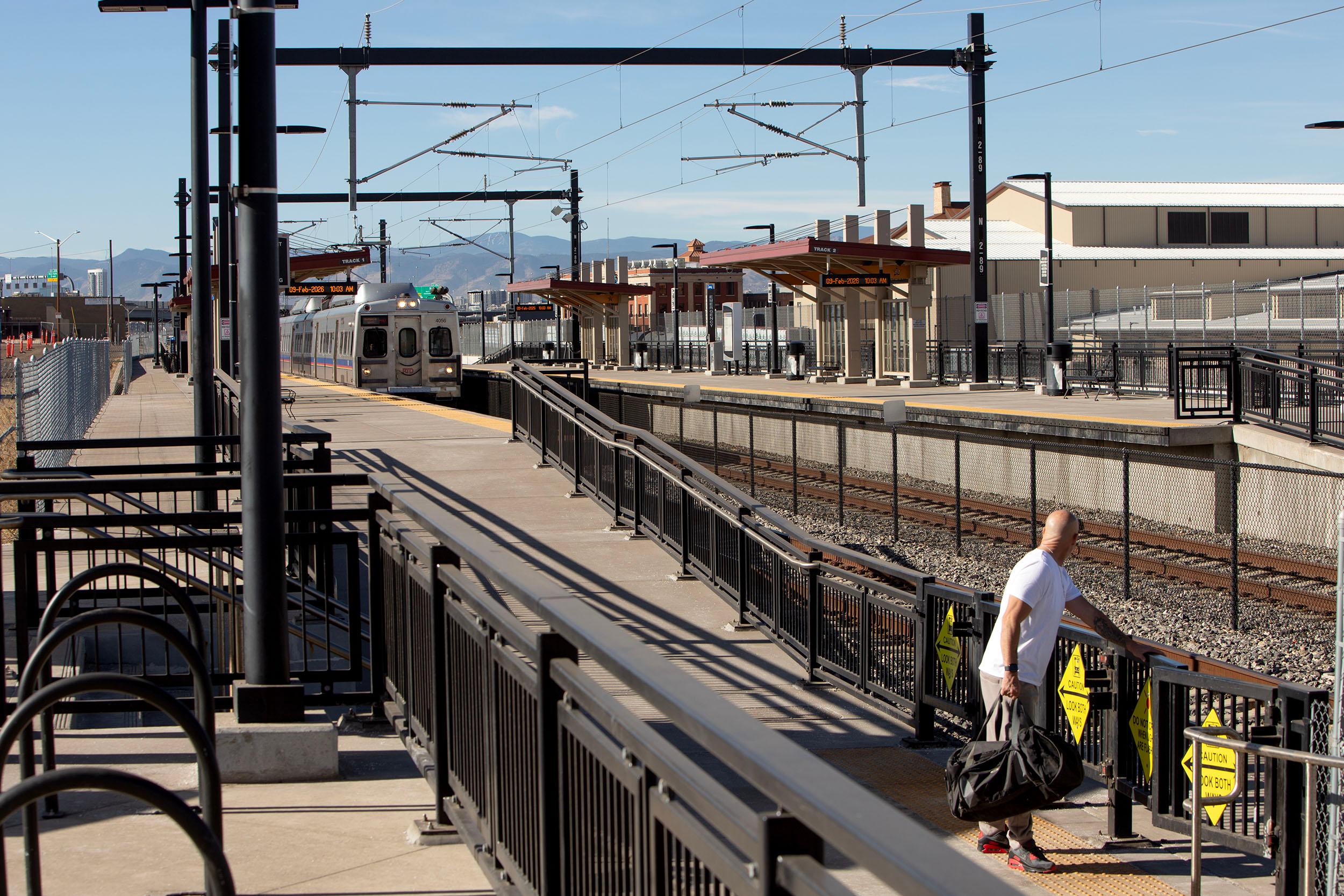Mayor Mike Johnston recently faced a tough question about his proposal to pay for affordable housing by raising taxes, and he appeared to get a significant fact wrong when he gave the answer.
The question was about Ballot Measure 2R, which would collect about $100 million a year by raising local sales taxes.
Paul Karolyi, a host of the City Cast Denver podcast, asked Johnston in an interview why he wanted to increase sales taxes. Sales taxes are regressive, meaning they have a greater proportional impact on lower-income people. Karolyi asked why the measure didn’t tax property owners instead.
Johnston responded that property taxes just wouldn’t work — for logistical reasons. He said that raising property taxes wouldn’t be an effective way to pay for housing, because most of the new tax money would go to funding Denver Public Schools instead.
“First of all, under TABOR and for other reasons, a property tax in Denver, two-thirds of the property tax goes to the Denver Public Schools. That is how our property taxes are allocated,” he said. “If we put a $50 million property tax on, then we would get $17 million of that and Denver Public Schools would get $34 million.”
But that is a misunderstanding of the fundamentals of property taxes, according to state Sen. Chris Hansen, a member of the Joint Budget Committee and chair of the Commission on Property Tax.
“That is factually incorrect,” Hansen said after reviewing the mayor’s comments.
School taxes are separate from city taxes
It’s true that a lot of local property tax money goes to schools in Colorado. But the mayor is wrong to say that any increases to property taxes would automatically go to the schools, Hansen explained.
In Colorado, voters can approve “mill levies,” or higher property tax rates, for specific agencies and specific causes — like a City of Denver affordable housing program. There is no reason that a property tax increase proposed by the city would have to go to the schools.
“There have been many instances throughout the state where proposals have been brought forward for dedicated mills for specific expenditures, and that is an option Denver could have considered there,” said Hansen, who previously faced off against Johnston in the mayoral election.
In a phone interview on Friday, Johnston acknowledged the mistake.
"You’re correct that I misspoke," the mayor said.
Johnston agreed that it would, in fact, have been possible to pursue a property tax solely for affordable housing purposes.
But the mayor argues a sales tax was still the right approach.
Sen. Hansen acknowledged there are other reasons to propose a sales tax. Notably, a sales tax shifts some of the cost onto visitors and workers who live outside the city but spend money in Denver.
“There is that upside of Denver taxpayers, that we’re getting our friends in the suburbs to help pay for that,” Hansen said. And the city’s sales taxes are designed to offer some relief by exempting essential purchases. The sales tax doesn’t apply to groceries, gas and other essentials, as the mayor pointed out.
“If you’re thinking about a working family struggling, the biggest things they’re going to spend on are groceries and gas. Those are not affected by this [sales tax proposal],” Johnston told City Cast. “But the other reality is, the thing crushing those families the most is their cost of housing. We think this is actually progressive in where it focuses those dollars and how it helps change the thing that is hurting people the most.”
Meanwhile, a new property tax may have been harder to get approved. Property taxes have been a red-hot topic in Colorado lately. A sudden spike in taxable values led to sharp increases in property values, and lawmakers have been racing to blunt the effects.
"Given what we’re trying so hard to do is to reduce the cost of housing, we didn’t want to add a tax that increased the cost of housing," Johnston told Denverite.
But property taxes have some benefits, too, according to Therese McGuire, a professor at the Kellogg School of Management at Northwestern University who specializes in property tax policy.
“When you ask an economist, it might be their favorite tax,” she told CPR News last year.
Property taxes tend to put more tax burden on wealthier people compared to some other measures, McGuire said, and have fewer distorting effects on economic activity. The state of Colorado has tried to make its property tax system more progressive by offering discounts aimed at people who own lower-value properties, Hansen said.
“I remain very concerned about the regressive nature of sales tax,” Hansen added.

Will voters approve another tax?
Denver voters are also being asked to raise sales taxes to help keep Denver Health afloat. Together, the hospital and housing taxes, if approved, would add 8.4 cents of sales tax to a $10 purchase.
The measures would raise Denver’s total sales tax rate to 9.65 percent, including state sales tax and other sales taxes, like the one that funds RTD. In the past, Denver voters have been relatively happy to raise their own taxes. But Hansen worries that they may soon say “no more.”
“If all of the questions pass, [Denver’s rate] would be very near 10 percent, which would put it near the top of the list in the state, and if you look nationally that is a kind of psychological threshold that typically localities don’t want to ever go over 10 percent,” he said.
Editor's note: This article was updated Oct. 25, 2024, at 4:50 p.m. with comments from an interview with Johnston.

